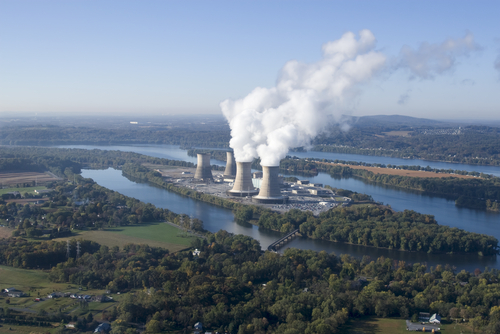
Pennsylvania Public Utility Commissioner Andrew Place sent a letter to a state Senate committee last week expressing his opposition to Senate Bill (SB) 510, legislation that would support nuclear energy by amending the state’s renewable energy portfolio standard.
The Senate bill argues that nuclear energy needs to be recognized for long-term employment, economic, environmental, and grid resilience benefits and that placing government subsidies on the state’s five nuclear power plants will reduce ratepayers’ monthly utility bills.
“While human health and environmental quality; job creation and retention; and maintaining a robust tax base are all cornerstone public policy goals, this bill, in its current form, is far from the least cost mechanism to achieve these goals,” Place wrote to the state Senate Consumer Protection and Professional Licensure Committee.
Place stated that as drafted, the bill would cost ratepayers between $422 million and $506 million annually. He concluded the letter by stating that he did not believe the bill was “just and reasonable” for Pennsylvania ratepayers.
In his memo, Place highlighted the planned retirement of Exelon’s Three Mile Island plant in Dauphin County and FirstEnergy’s Beaver Valley plant in Beaver County. He said that if Three Mile Island and Beaver Valley were to retire over the next few years as planned, grid reliability would not be compromised.
“[However], the subsidization of such a significant portion of the wholesale energy market would be distortional to competitive market prices,” Place wrote. “Additionally, this bill does not provide certainty that these nuclear plants would not close.”
With regards to SB 510, which was sponsored by Sen. Ryan Aument (R-Lancaster), the other four utility commissioners also sent a joint statement and took a more neutral position on the legislation. They did note that only Three Mile Island is in substantial financial stress at this time.
“While other states have passed legislation in support of nuclear generation, there are key differences between those in those statutes and the proposal currently before your Committee,” Place wrote. “Particularly, states have only subsidized a portion of their nuclear generation, required plants to show evidence of financial necessity and coupled nuclear support with enhanced support for renewable energy and energy efficiency.”
Place urged committee members to consider other alternatives, including putting a price on carbon, which would require polluters to pay for their emissions; promoting energy efficiency; and investing in zero-emission generation.